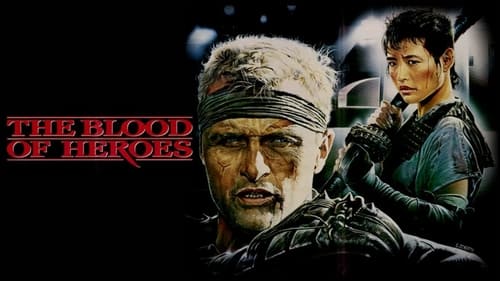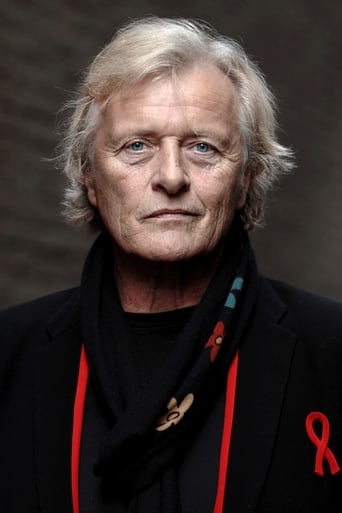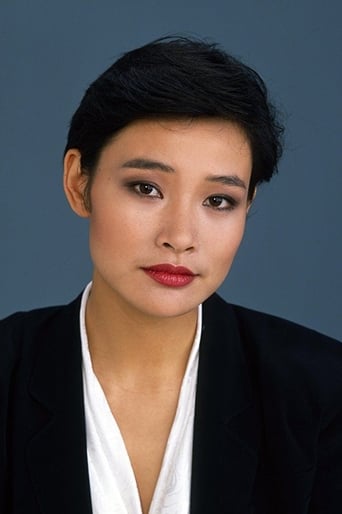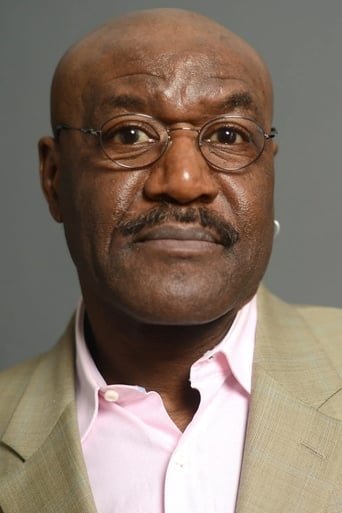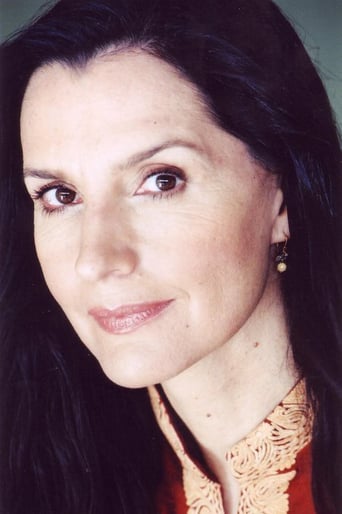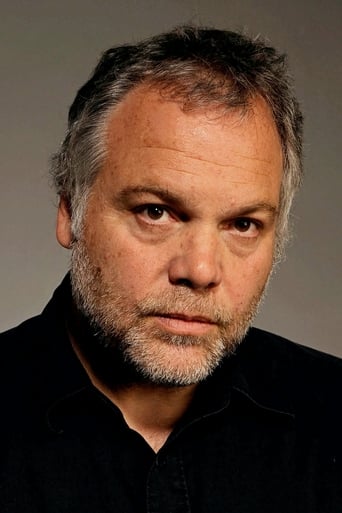Connianatu
How wonderful it is to see this fine actress carry a film and carry it so beautifully.
Kirandeep Yoder
The joyful confection is coated in a sparkly gloss, bright enough to gleam from the darkest, most cynical corners.
Marva-nova
Amazing worth wacthing. So good. Biased but well made with many good points.
Juana
what a terribly boring film. I'm sorry but this is absolutely not deserving of best picture and will be forgotten quickly. Entertaining and engaging cinema? No. Nothing performances with flat faces and mistaking silence for subtlety.
JohnHowardReid
One of my most interesting experiences. Alas, the off-camera drama proved far more fascinating than the rather superficial, futuristic, action/adventure, grind-house offering that finally emerged on the screen. I worked on the film for only four days of a ten-week shooting schedule. But, aside from a brief shot of me in the Red City street as I pass by Gandhi on the right of the wide-wide screen, my part was left on the cutting-room floor. An earlier scene in the street in which I was accosted by a young boy, excitedly telling me that he'd just found a magic stone, was eliminated. Indeed, not only was this scene (and another in which I figured as worshiper in a weirdly colorful religious ceremony at a Red City temple), completely deleted, but the whole sub-plot involving this young lad was removed. He's no longer in "Salute of the Jugger" at all. That's a shame, because he was easily the best actor in the movie. A fine acrobat, a naturally gifted, charismatic performer, handsome as they come, with a captivating personality, he looked set for major stardom. I don't even remember his name.I was on the set at the same time as Rutger Hauer, Delroy Lindo, Gandhi McIntyre, Joan Chen, Hugh Keays-Byrne (a wonderful actor in a made-to-order villainous role, which was cut to ribbons in the editing room), and numerous extras in an elaborate opening ceremony to the Red City games. This ceremony was also hacked out of the final cut. And almost as bad as the deletions already mentioned, was the pruning of Joan Chen's part in the climactic game. She bravely performed her own stunts (receiving many spontaneous rounds of applause from the assembled crowd artists), but all her efforts came to nought. They were scissored too. On the other hand, just about all Glenn Ruehland's footage was left in. He doubled for Hauer. It's interesting that the star wasn't even on the set for most of Ruehland's vigorous fighting. He came in right at the end for close- ups.I didn't see much of David Peoples on the set. The first morning he had a set-to with Rutger Hauer. Peoples wanted to end the star's first sequence in a Red City street with Rutger turning his back on the camera, walking away down the bustling thoroughfare and being swallowed up by the unknowing crowd. But Rutger absolutely refused to turn his back on the camera. After nearly an hour of fruitless argument, the producer was sent for. We waited another hour, and when the money- man eventually arrived, he adjudicated in favor of Hauer. Peoples walked off the set. The scene was then directed the Hauer way by Keith Heygate. And in the afternoon, when Peoples had not returned, the jettisoned temple scene (in which Hauer didn't appear anyway) was directed by David Eggby. Peoples, unshaven, bleary-eyed, returned a few days later. He explained that he'd been working on the script. In the meantime, the climactic games sequence had been directed and painstakingly choreographed by Guy Norris. His principal players were Ruehland (who assisted in "co-ordinating" these scenes) and Joan Chen. While the action specialists were busy rehearsing the juggers, photographer David Eggby in close collaboration with the continuity girl (indeed she took charge as the filming progressed) directed two scenes with the spectators.Another interesting point was that a second camera was used for all scenes, except those actually involving the games. Eggby had no connection with the second camera, which had its own crew, and was generally set up behind and to the side of the first. Eggby did supervise the lighting of the set and actually operated his camera himself, with the aid of a focus puller. Cross was in charge of the second camera, which had its own operator and focus puller. These people were completely ignored by both Eggby and Peoples who both acted as if that crew didn't exist. Cross received his instructions from Keith Heygate (who yelled at Cross angrily when Cross asked for time-out to make some camera adjustments). In addition to these duties, the usually pleasant-mannered Heygate also personally directed the placing and blocking of the extras, as well as supervising the special effects men and the animal handler. The main scene that Peoples directed himself, while I was on the set, was the opening ceremony of the games, very elaborately staged, rehearsed and choreographed. I also overheard him telling a visitor that the young lad I mentioned earlier was a "great discovery" and that "Salute of the Jugger" would set the boy firmly on the path to international acclaim.So there you have it. The credits, even the seemingly endless roll-calls attached to modern films, don't tell the whole story. Anything like the whole story. Many people still make important contributions without any credit at all. And some people who are credited actually do either very little to earn that name in lights, or contribute far more than the field in which their name appears!Which brings me to my final point. Salute to the Jugger is a Poverty Row film in reverse. The aim of a Poverty producer is to use every trick in the book to expand his meager budget so that it looks shatteringly lavish on the screen. Jugger's editor evidently had the opposite aim. Make the film look cheap. Although filmed on a money- no-object scale, the on-screen Jugger has the appearance of an inferior American-International. You should have seen the Red City street down which I and about two hundred meticulously costumed extras wandered. The shops. Wow! All filmed with the weirdest, most bizarre, most inventively created produce and goods that highly imaginative designers and set dressers could imagine. And what do we actually see on the screen. Zilch!
Azundris
Jugger is a great spectator sport; it's quick, with strategic elements, something's always going on, and a third is over before any ADD you might have could set in. The movie, though? Well, to start with, it's the boredom of watching a fixed game that any sports movie offers. (And not much else, there isn't really much in the way of plot.) But you'll also be watching a game the rules of which aren't properly explained, and the cinematography isn't conducive to figuring it out, especially in the key games which happen in half-light. Any of Blade Runner, Split Second, even Wedlock are better vehicles for Hauer.Reviewed: "Long" (99min/PAL) DVD. May work better on theatre size screen.
Woodyanders
In a bleak near future society has regressed to a desolate feudal state. The lone source of hope is a brutal gladiatorial game called jugging in which rival teams beat the living tar out of each other while one person tries to put a severed dog's head on a stick. A jugging team lead by the steely and hard-nosed Sallow (a splendidly rugged performance by Rutger Hauer) are determined to participate in a big league match. Eager new addition Kidda (a fabulously feisty portrayal by Joan Chen) helps out. Writer/director David Webb Peoples expertly concocts a harsh and gritty, yet still positive and optimistic ode to the human spirit and sportsmanship which makes a profound and touching statement about man's basic need for achievement. The jugging matches are every bit raw, savage, bloody and exciting as they ought to be, with lots of heavy duty beatdowns and several truly jolting moments of nasty violence (watch out for the scene when Kidda bites a guy's ear off!). Moreover, there's a surprising sense of genuine humanity to be found amid all the unrelenting grimness and vicious carnage; the respect and loyalty the jugging players have for one another is truly moving. The uniformly fine acting by a tip-top cast rates as another substantial asset: Hauer and Chen are terrific in the leads, Max Fairchild adds real depth to his spot-on characterization of redoubtable and pitiless, yet honorable champion jugger Gonzo, plus there are praiseworthy turns by Vincent D'Onofrio as the brash, cocky Gar, Delroy Lindo as the strong, imposing Mbulu, Anna Katarina as fearsome warrior woman Big Cimber, Gandhi MacIntyre as the jolly Gandhi, Justin Manju as the proud Dogboy, and Hugh Keays-Byrne as ruthless aristocrat Lord Vile. The climactic jugging match is totally thrilling and compelling. Well worth seeing.
wj-1
It was a while ago when I first saw this movie and watched it again recently. People might complain that it doesn't have enough dialogue, plot is not intricate enough, there aren't any special effects for a Sci-fi movie, and it is too low budget to be considered a good movie. But I'll say people who say such things, they don't really know how to appreciate a good movie or understand what a good movie is, because they are too used to modern day rubbish jam packed with special effects, explosions, unnecessary twists and horrible scripts.I think everything is done just right in the movie and I especially love the way they give no sentimentality to the backdrop to the movie. No discussion of the past as to why the world they do jugging is the way it is and everyone in this world just get on with their lives in this gritty desolate world without any lamenting thoughts to the past.I won't go into much detail, but all I'll say is just watch the movie and you'll be glad that you did. By the way, it seems like there are two versions which I didn't realise until I read the comments here and seems like the shorter version cuts out the ending. Since I thought the ending was very fitting I do recommend you watch the longer version, it just won't have the same impact without the proper ending.

